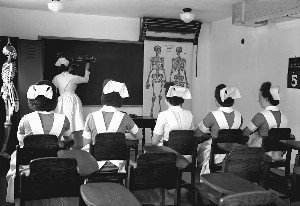Agustina Ginting, Esto Tumanggor
Pengaruh Gaya Belajar Mahasiswa terhadap Hasil Belajar Bahasa Inggris Teknik pada Prodi Teknik Elektronika Polmed
Introduction
Pengaruh gaya belajar mahasiswa terhadap hasil belajar bahasa inggris teknik pada prodi teknik elektronika polmed. Pelajari pengaruh gaya belajar (visual, auditori, kinestetik) terhadap hasil belajar Bahasa Inggris Teknik mahasiswa Teknik Elektronika Polmed. Meningkatkan strategi pembelajaran untuk hasil optimal.
Abstract
This study aims to determine the effect of students' learning styles on the learning outcomes of Engineering English in the second semester of the Electronic Engineering Study Program at the Medan State Polytechnic in the 2024-2025 academic year. The learning styles studied include visual, auditory, and kinesthetic learning styles based on the VAK model. This study uses a quantitative approach with a correlational method. The sample in this study were second-semester students taking the Engineering English course, with a total of 100 respondents selected through a purposive sampling technique. The instruments used were a learning style questionnaire and documentation of learning outcome scores. Data were analyzed using descriptive and inferential statistical techniques, namely Pearson correlation and linear regression. The results of this study are expected to contribute to developing learning strategies that are appropriate to the characteristics of student learning styles, in order to optimally improve Engineering English learning outcomes.
Review
This study proposes to investigate a highly relevant topic concerning student learning, specifically examining the influence of visual, auditory, and kinesthetic (VAK) learning styles on Engineering English learning outcomes among second-semester Electronic Engineering students at Medan State Polytechnic. The title clearly indicates the study's scope and context, while the abstract articulates a precise aim: to determine the effect of these learning styles. The chosen quantitative correlational approach is appropriate for exploring such relationships, offering a structured method to understand how student characteristics might impact academic performance in a specialized language course. Methodologically, the study outlines a sound plan for addressing its objective. With a sample size of 100 respondents selected via purposive sampling, the research aims for a robust data set. The use of a validated learning style questionnaire, combined with the documentation of learning outcome scores, provides clear instruments for data collection. Furthermore, the planned data analysis using descriptive and inferential statistics, specifically Pearson correlation and linear regression, aligns well with the correlational design and the objective of determining effects. While the abstract sufficiently details the methodology for an initial review, a full paper would benefit from a more explicit description of how "learning outcome scores" are specifically measured (e.g., final exam, course assignments) to ensure full transparency and replicability. The potential contribution of this research is significant. By identifying the relationships between learning styles and Engineering English outcomes, the study promises valuable insights that can inform the development of more effective and student-centered learning strategies. Such findings could empower educators at polytechnics, and similar vocational institutions, to tailor their pedagogical approaches to better suit the diverse learning profiles of their students, thereby optimizing learning experiences and ultimately improving academic achievement. This aligns with contemporary educational trends emphasizing personalized learning, making this study's expected results highly applicable and impactful for practical pedagogical enhancement.
Full Text
You need to be logged in to view the full text and Download file of this article - Pengaruh Gaya Belajar Mahasiswa terhadap Hasil Belajar Bahasa Inggris Teknik pada Prodi Teknik Elektronika Polmed from Jurnal Ilmiah Otomasi .
Login to View Full Text And DownloadComments
You need to be logged in to post a comment.
Top Blogs by Rating
The Invisible Load: Unveiling...
By Sciaria
Beyond Repair Shops: Unlocking...
By Sciaria
Phantom Power: Unmasking Your...
By Sciaria
Favorite Blog
The Unspoken Wisdom: Embracing...
By Sciaria
Beyond the Stereotype: Unpacki...
By Sciaria
The Elusive Self: Is Authentic...
By Sciaria
Related Research
Infrastruktur perpustakaan digital dan preferensi mahasiswa dalam mengembangkan budaya literasi di perguruan tinggi: studi kasus di universitas negeri sunan ampel surabaya tahun 2023-2024
Szlachectwa ormian polskich od xiv do xx wieku: zarys problematyki
Reseña de muñoz-basols, javier; fuertes, mara; cerezo, luis. 2024. la enseñanza del español mediada por tecnología. de la justicia social a la inteligencia artificial (ia). londres y nueva york: routledge.
Share
Notice Board
- DEVELOPMENT OF ELECTRIC POWER STEERING DEVICES TO IMPROVE STEERING SYSTEM MAINTENANCE AND OVERHAUL ABILITIES
- SEMI-AUTOMATIC CLASSIFICATION OF LANDFORMS AS A TOOL TO STRESS GEOARCHAEOLOGICAL ISSUES: AN EXAMPLE FROM THE METAPONTO COASTAL BELT, SOUTHERN ITALY
- FORMULATION, QUALITY CHARACTERISTICS, AND RESEARCH TRENDS OF FISH BALLS: A BIBLIOMETRIC STUDY





